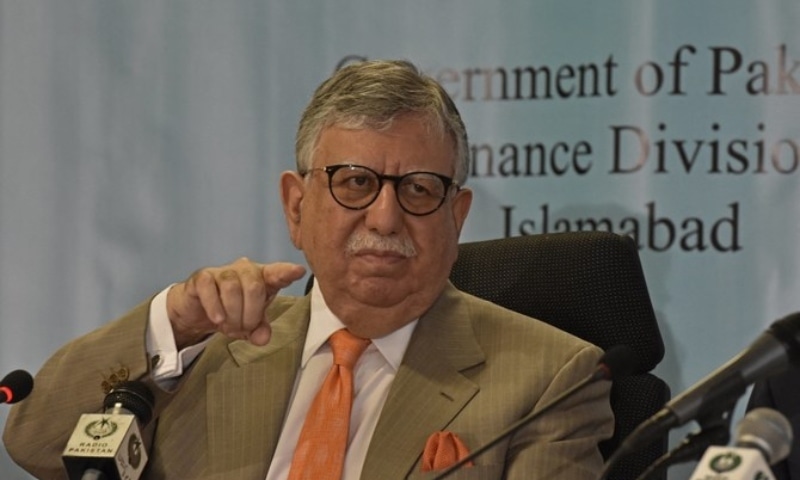Quitting IMF programme not possible now: Tarin

ISLAMABAD: Ruling out any disagreement, Finance Minister Shaukat Tarin has said that it is not possible for Pakistan to get out of the International Monetary Fund (IMF) programme at this time when the economy is reviving.
In a testimony before the Senate Standing Committee on Finance chaired by Senator Talha Mahmood on Wednesday, Mr Tarin also held out an assurance that the language of the proposed section 203-A on powers of taxmen to arrest will be changed and all objectionable things will be removed. Earlier, the committee unanimously turned down the arrest powers of the Federal Board of Revenue (FBR).
The minister informed the committee that the government estimates economy to grow by 7 per cent by FY23 when the country will go for new elections with projection of 5pc-5.5pc for upcoming 2021-22.
Opposition parties have blamed the government that the budget 2021-22 is laden with tax measures suggested by the IMF, which are anti-poor and will jack up consumer inflation.
“It is not possible to get out of the IMF programme at this time,” Mr Tarin said, adding “We were forced to go to the IMF”. “This time the IMF was not friendly with us and the programme was front-loaded and tough,” he further said while comparing with the previous programmes with the lenders.
He said that the power sector measures would be sustainable and will increase revenue. “This is what IMF want from Pakistan,” he remarked.
Mr Tarin said the country was in a dire need of inclusive and sustainable growth for which we need to enhance revenues and promote productive sectors, including agriculture.
Unfortunately, the country at present had become a net importer of food products and that was why the international food prices were having direct impact in Pakistan, he added.
On the issue of giving power to income tax officer to arrest any tax evader, Mr Tarin said that FBR’s authorisation to make arrests is not intended to make arrests. “The purpose of this law is to create fear among the defaulters,” he said.
The minister, however, suggested that government will consider recommendation of the committee on this specific issue.
Increasing tax ratio
As per the proposed plan, the minister said that the government will take steps to increase tax-to-GDP ratio by 1pc every year. If these steps had been taken earlier, the tax revenue would have exceeded Rs10,000 billion, he said.
The tax ratio is currently at 10pc and would go up to 11.5pc next year as the government was using technology and innovations for widening the tax base.
He said the FBR had obtained profile data of 7.2 million people, who would be approached to pay the tax. He mentioned that there were some sectors like agriculture and retail where tax base could be enhanced.
He said that a third party audit system is being introduced in the FBR to end tax harassment. “We have also removed the role of FBR in the audit,” he added.
Senator Sherry Rehman mentioned that share of indirect taxes has increased during the tenure of this government. On this Mr Tarin replied that indirect taxes have also been raised in China, Turkey and other countries.
The committee has strongly opposed government’s decision to increase sales tax on gold, diamonds and precious stones as well as on dairy products, bricks, aircraft, plants and machinery, importing aircraft and spare parts, withdrawal of exemption on LED lights, cotton seeds, soyabean meal, soyabean seeds, raw cotton, ginning cotton, plant, machinery, packaged flavored milk, cream, yogurt, poultry machinery and many other items. Member Policy FBR informed the committee that the government has abolished all reduced sales tax rates on the non-essential and luxury items, which were taking undue advantage of the concessionary sales tax regime.
Published in Dawn, June 17th, 2021














































